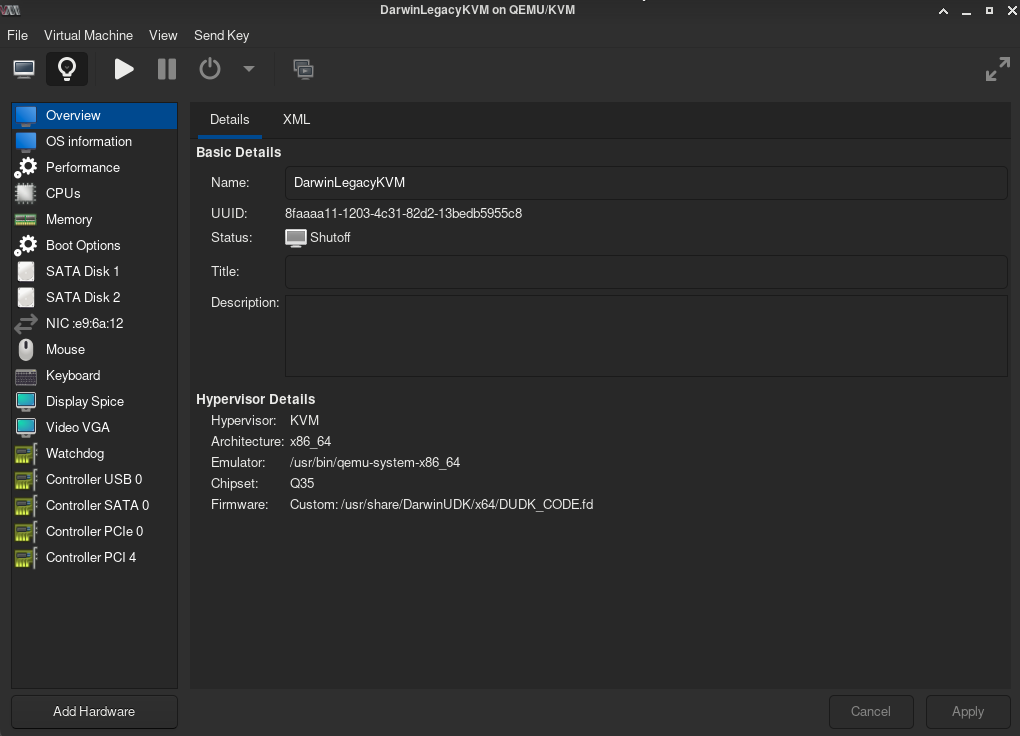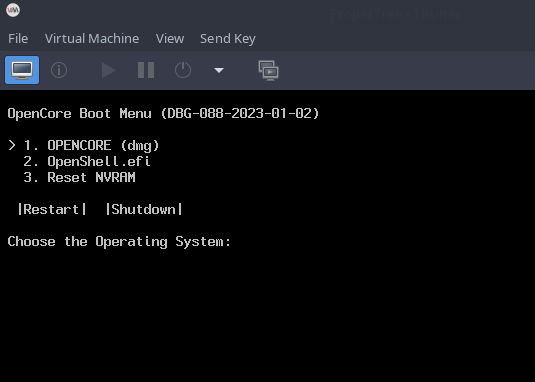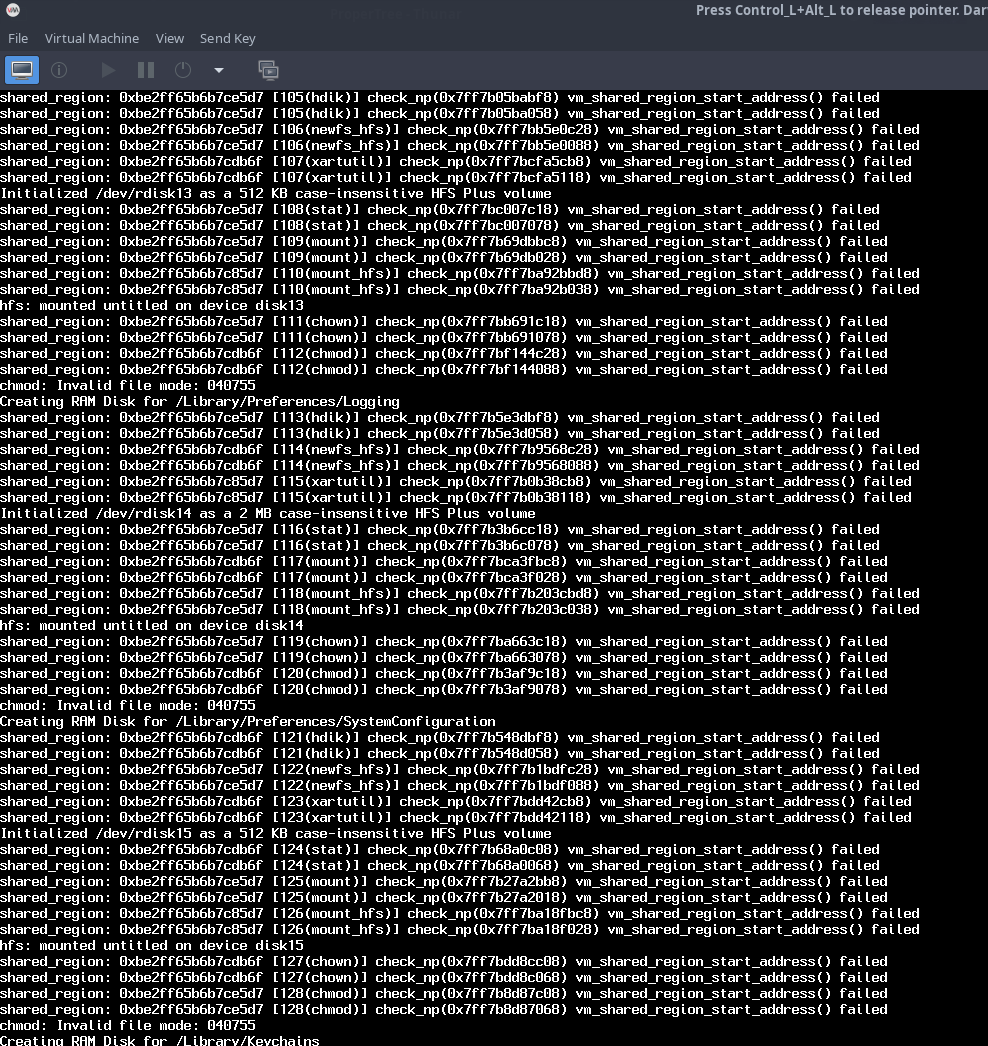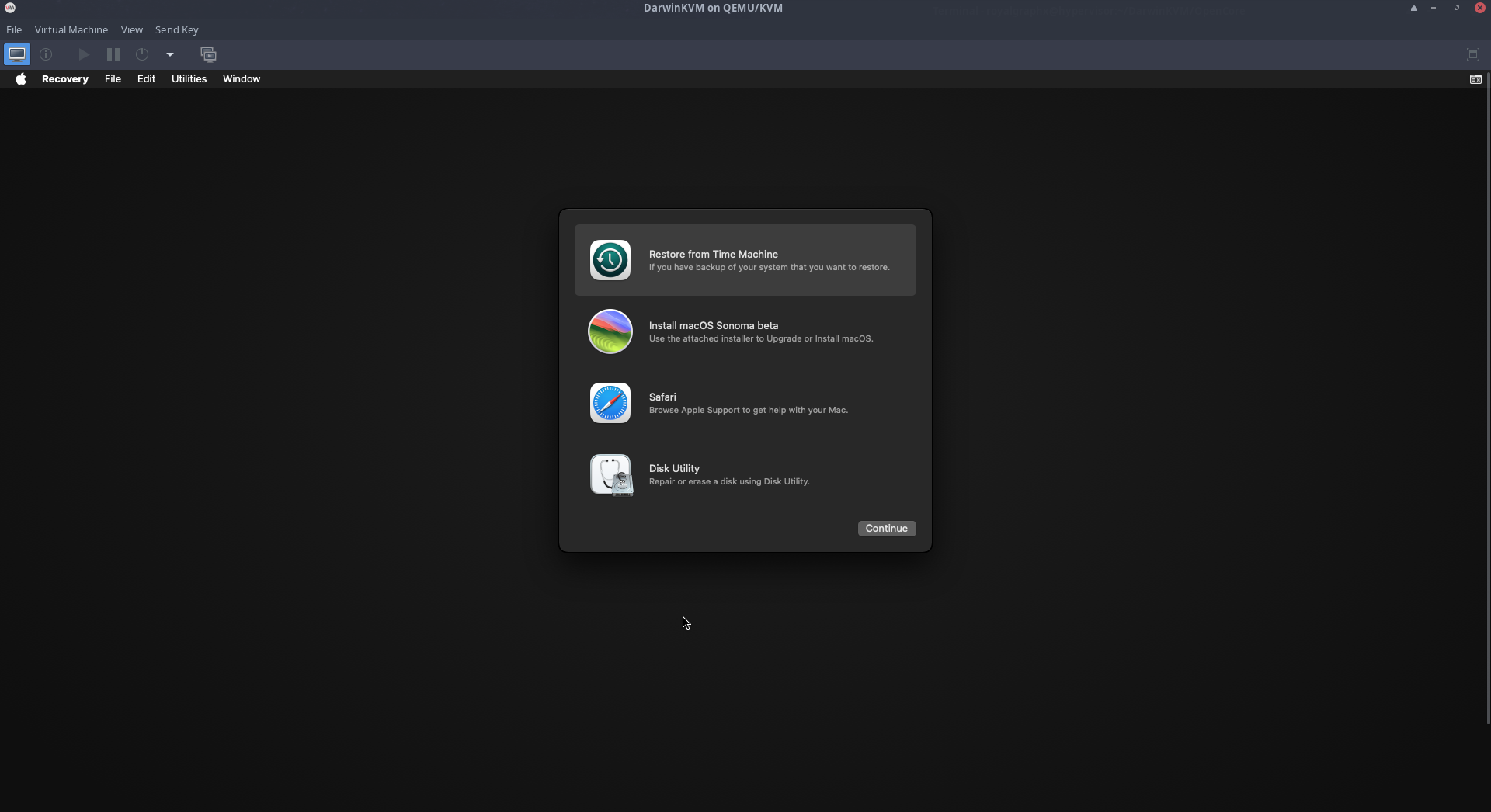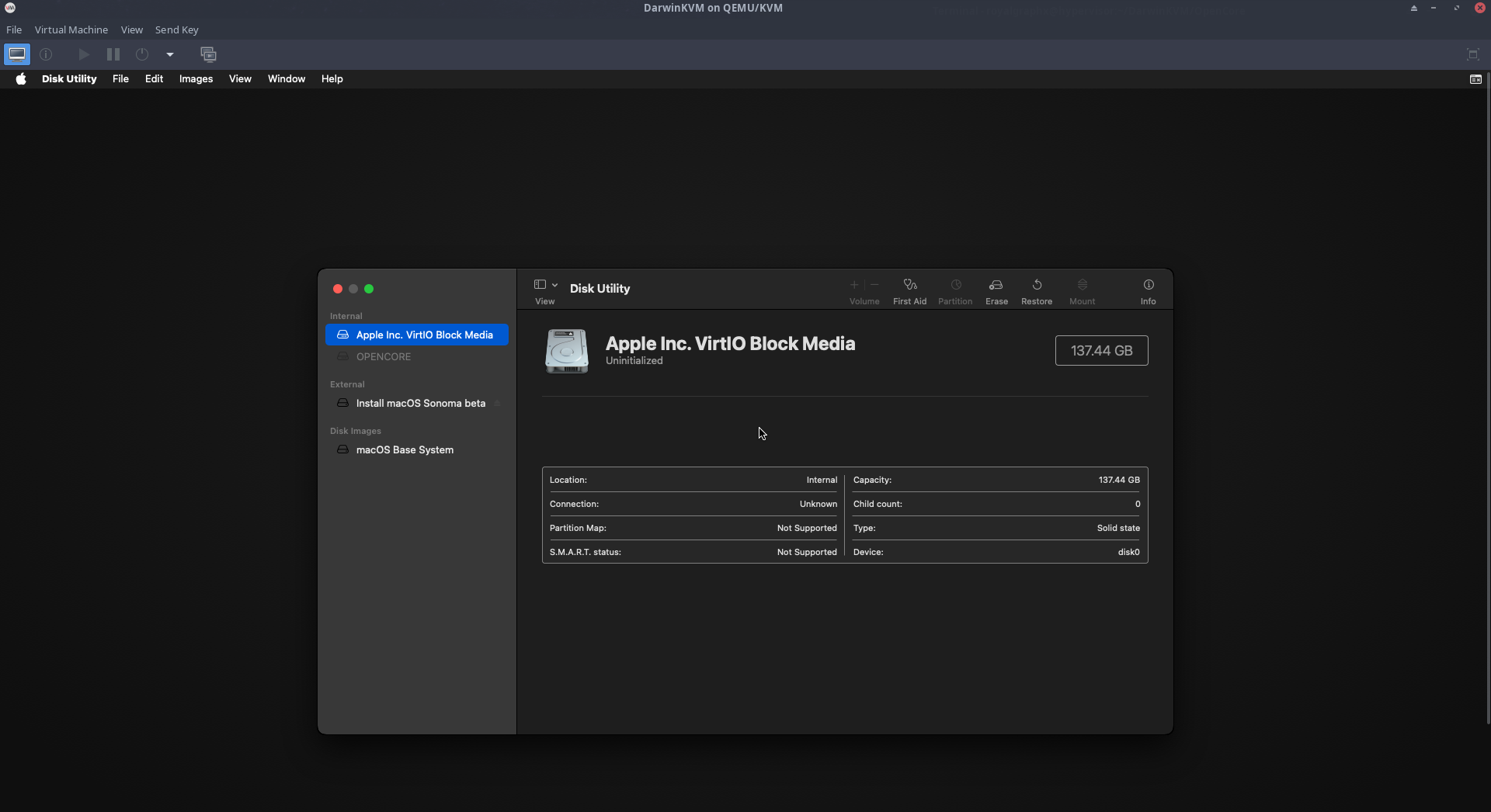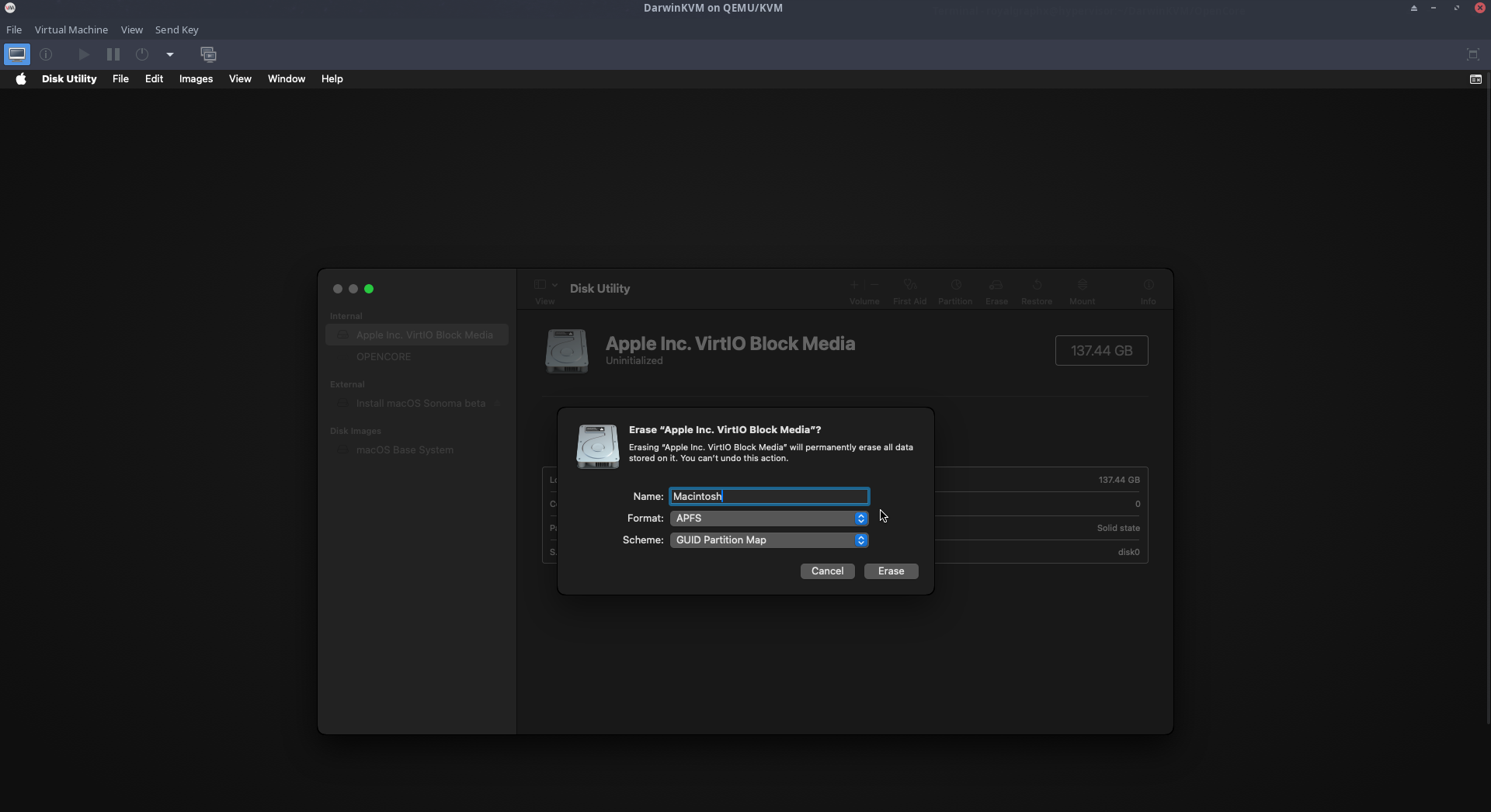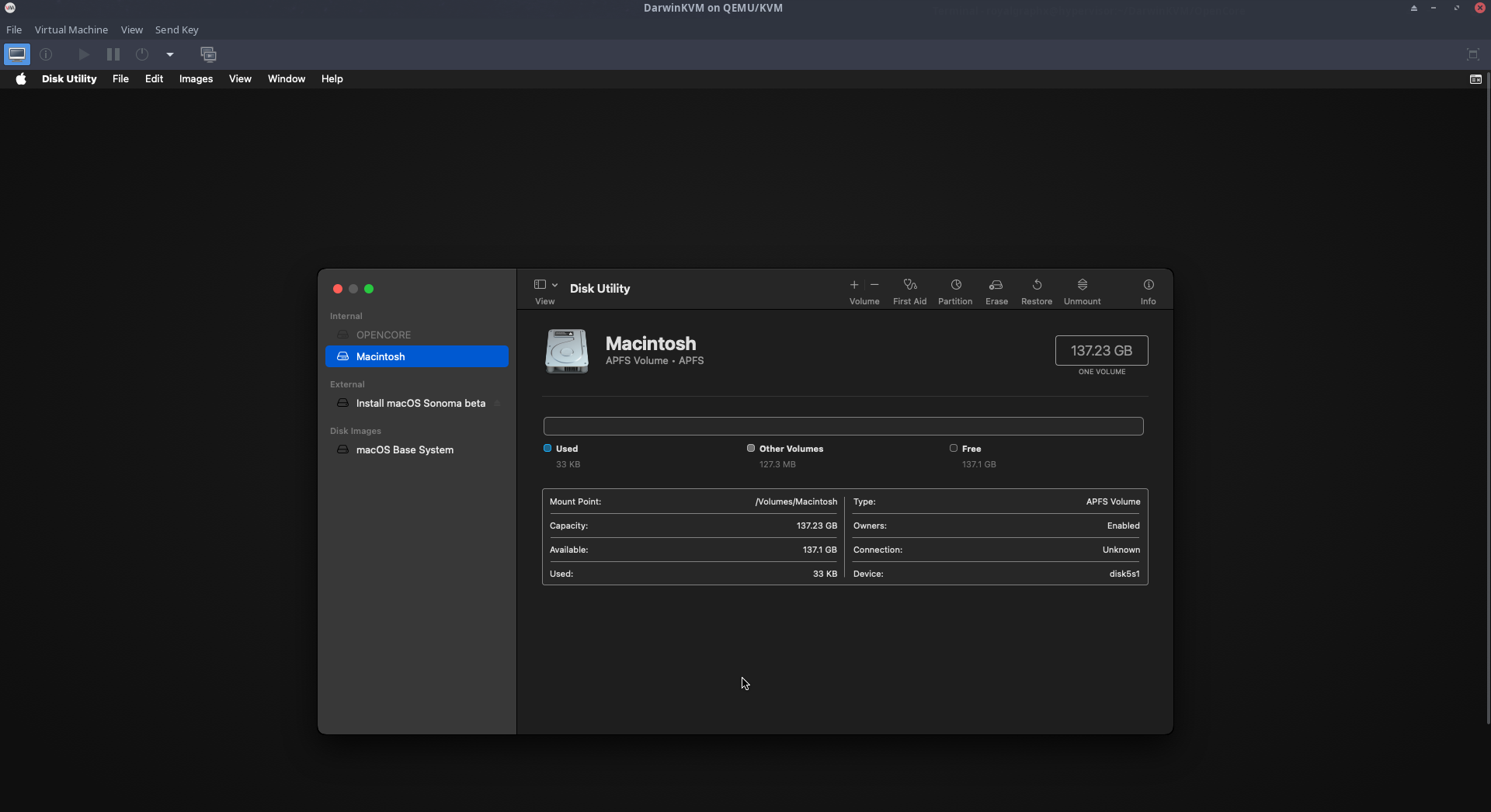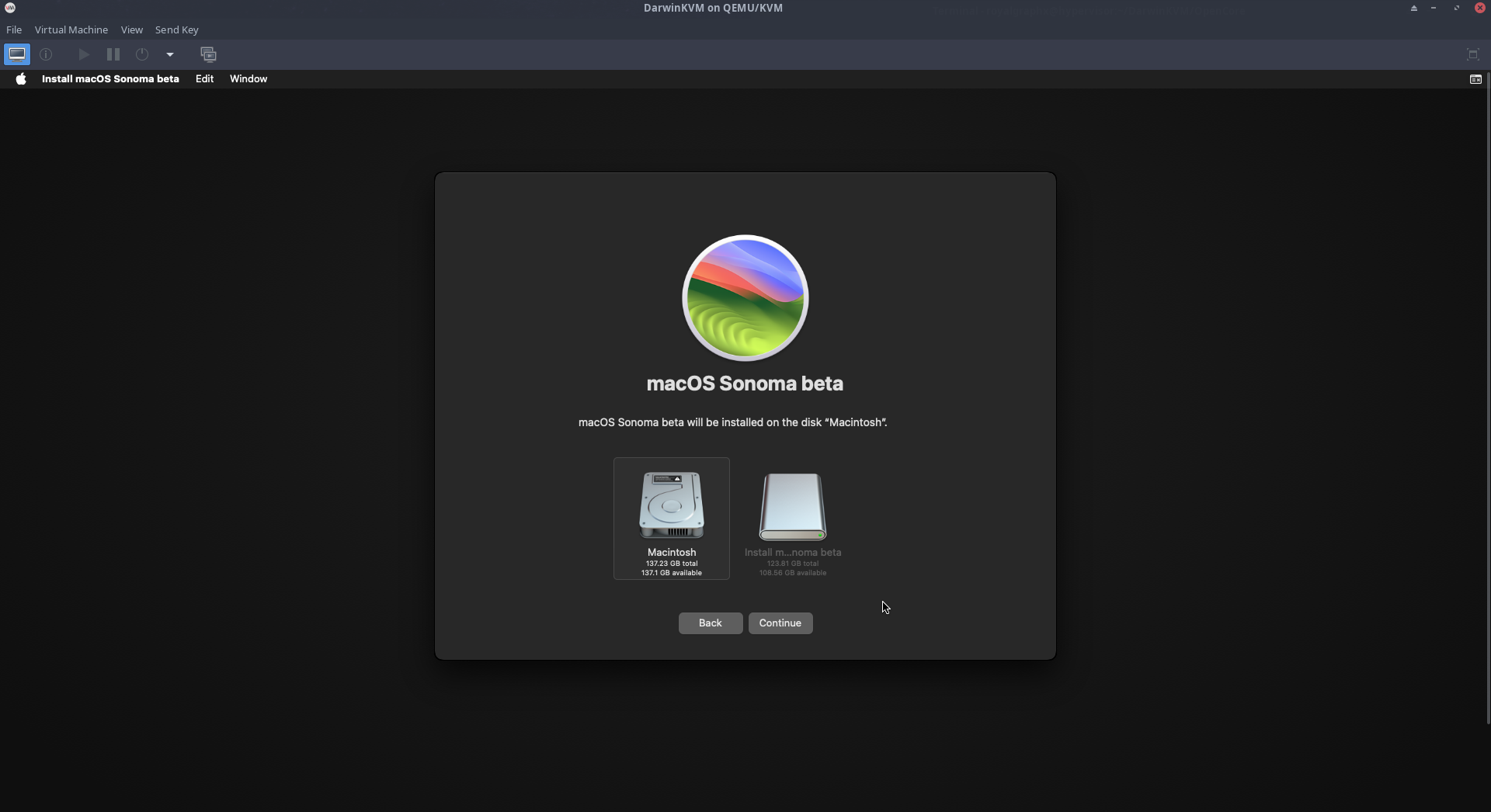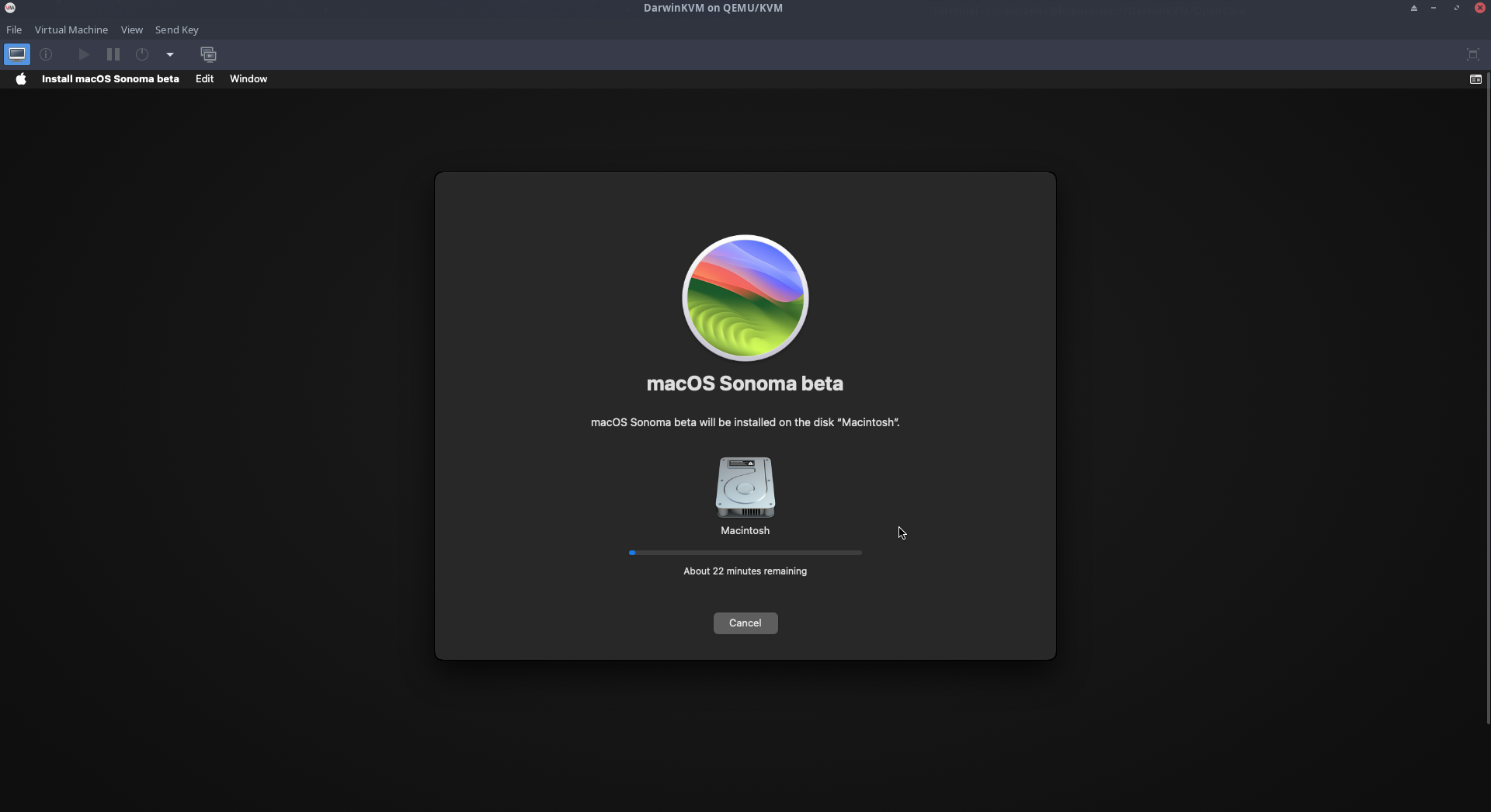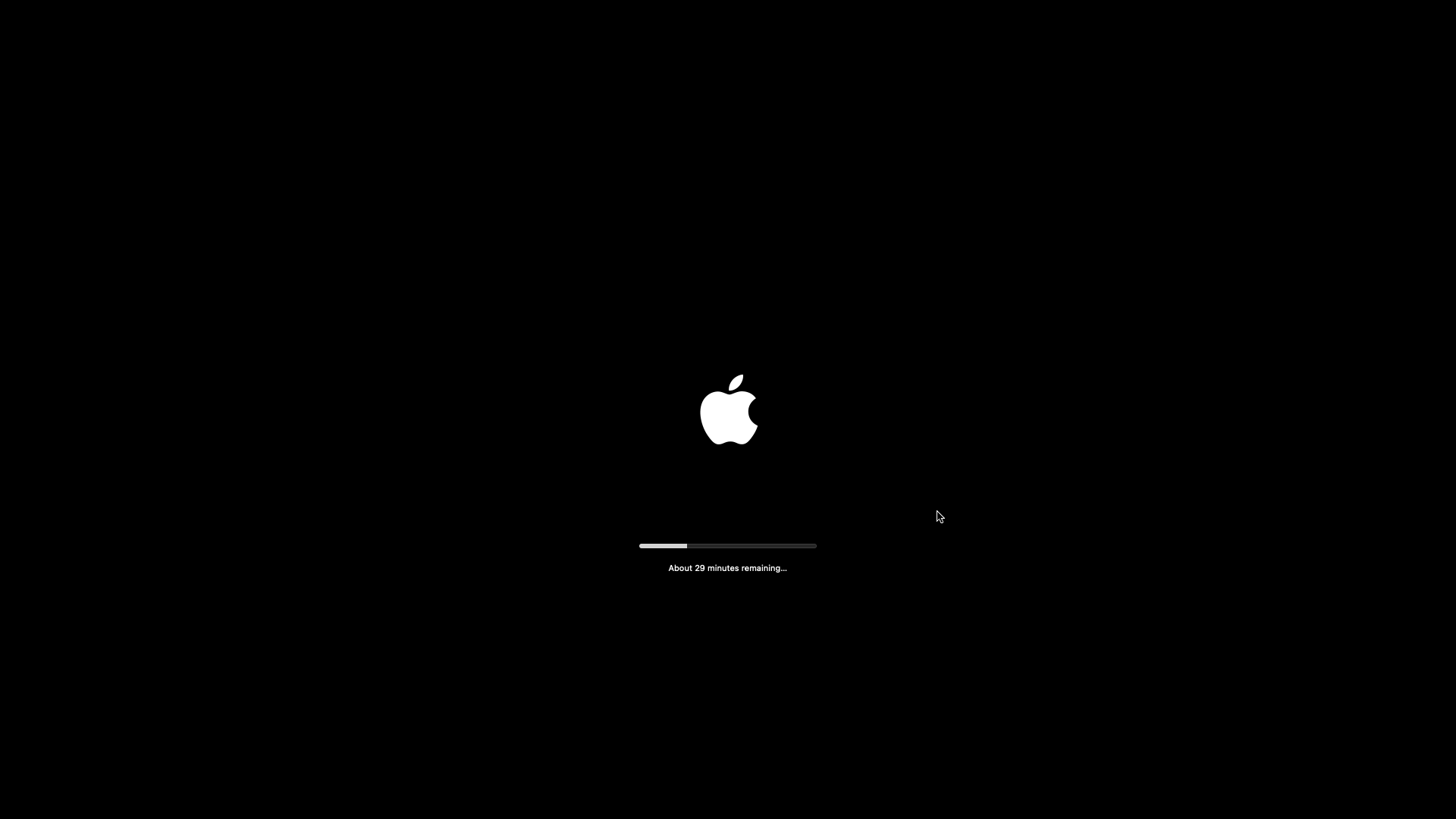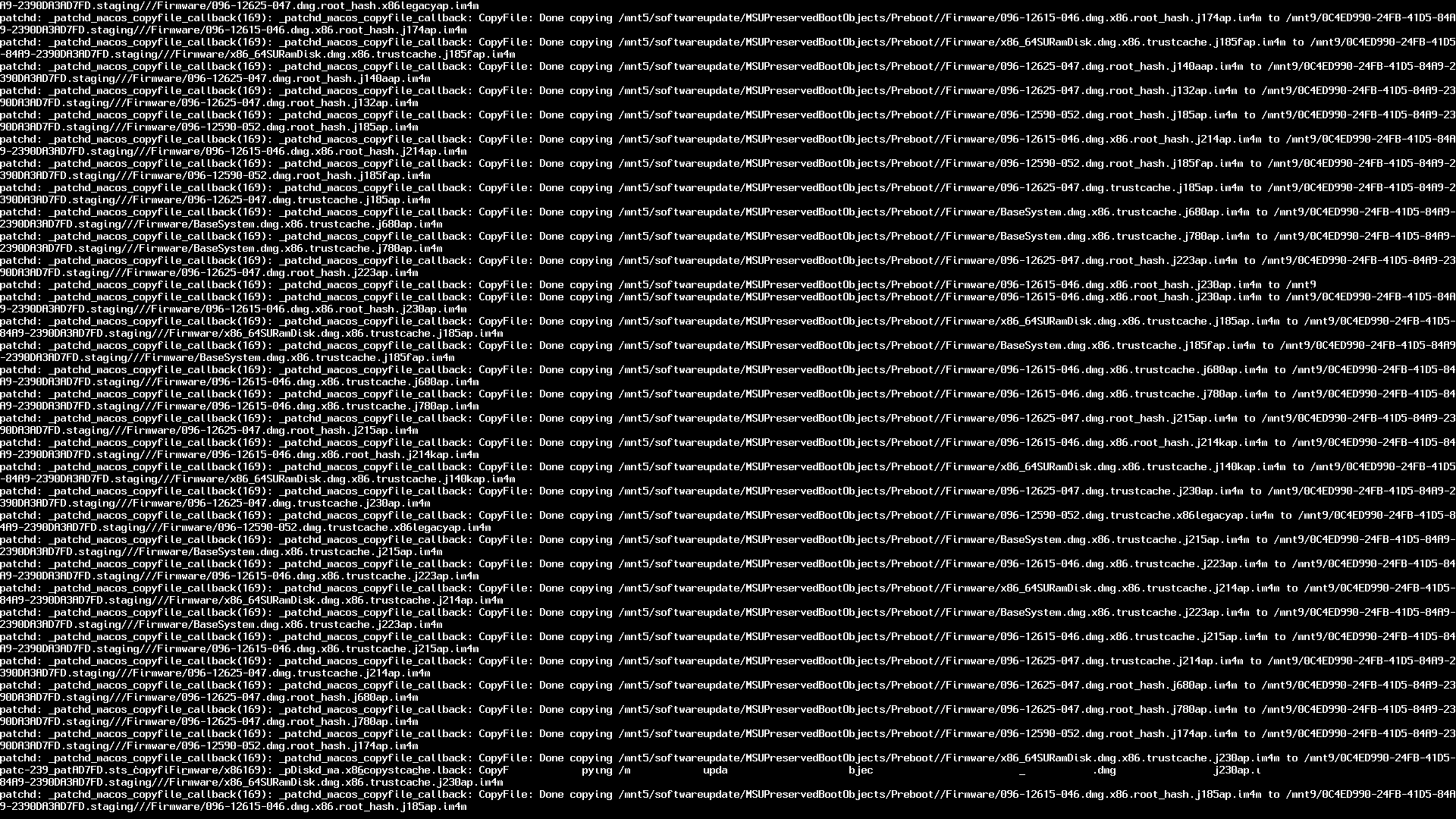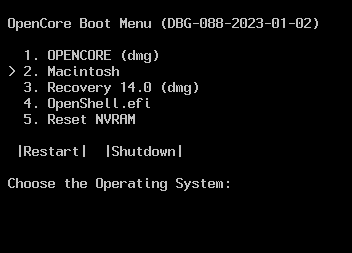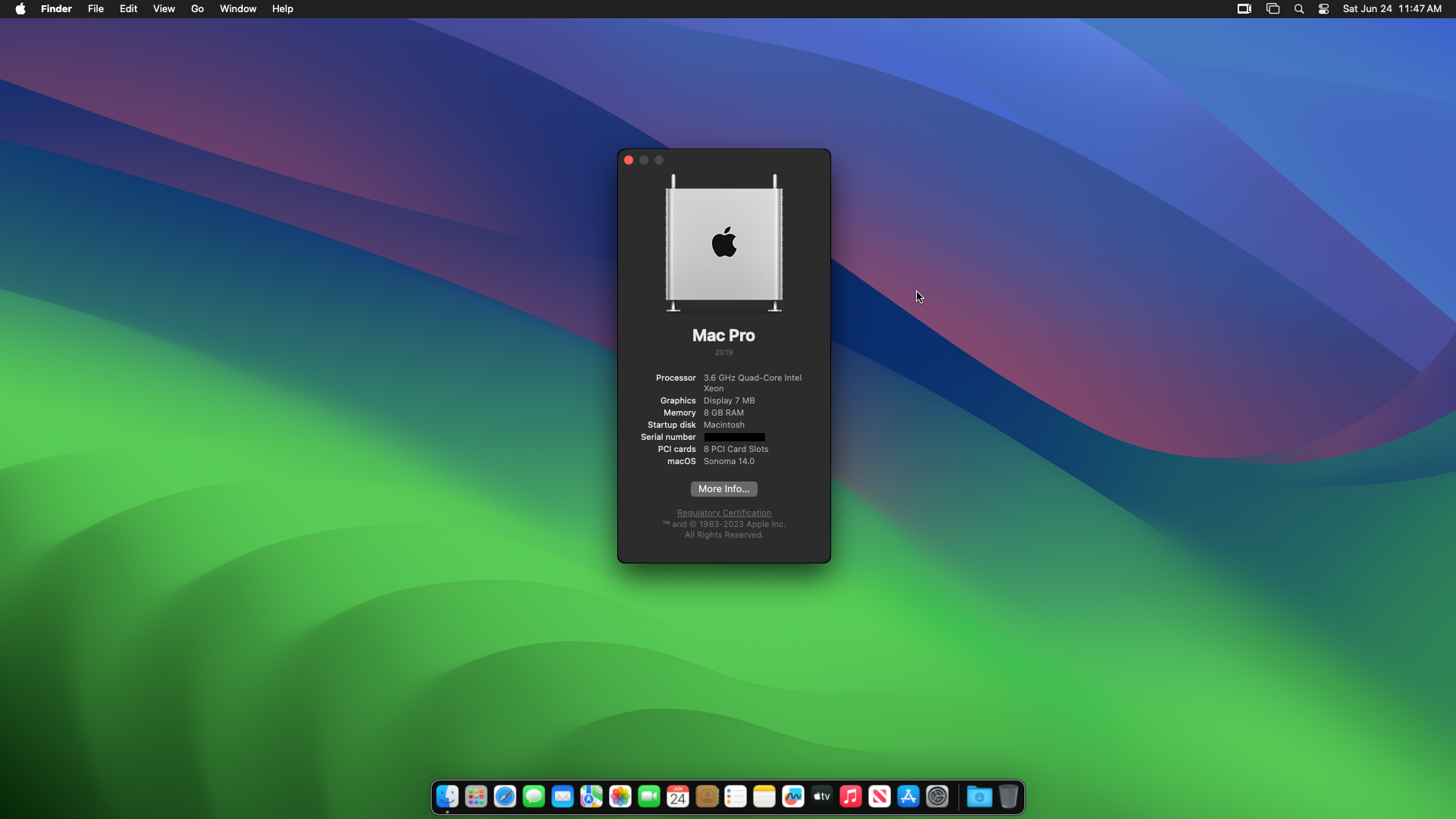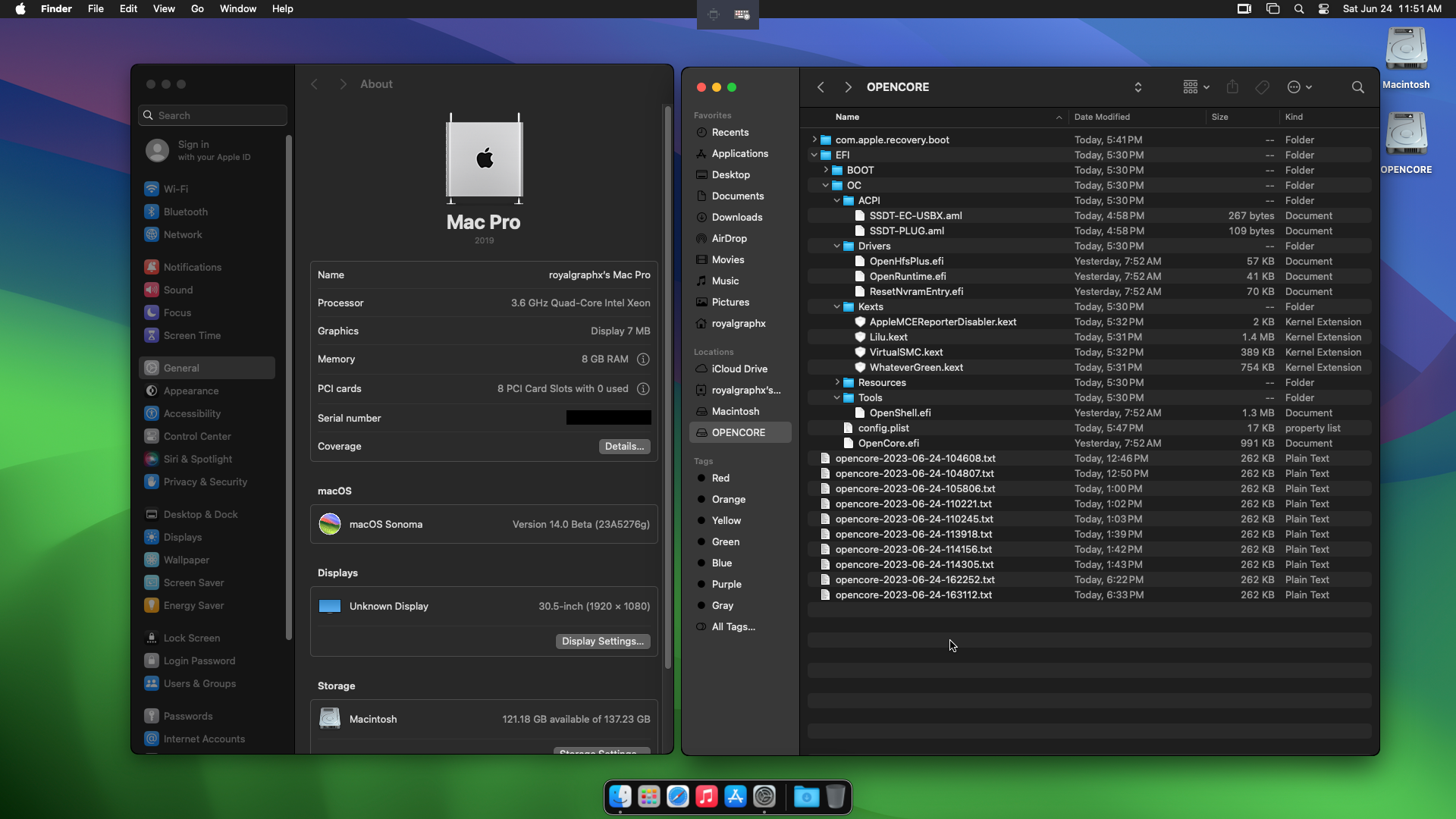Finished Example
Notice the left-hand panel now has everything properly defined to use via Virt-Manager.
Using the recoveryOS or Offline Installer, you may now proceed to installing the OS. Please do not continue until you reach the desktop of your Guest OS. You can scroll past this page to view the preferred method of installation with MacPro7,1 which is recoveryOS.

This section uses newer macOS when they need to be updated for a legacy experience. Preferrably showcase High Sierra as it’s very common for those on NVIDIA GPUs.
Booting from the recoveryOS .dmg on the OpenCore disk image is known to take anywhere from a few seconds, to 5 minutes to load! You are not frozen. OpenCore is copying the DMG to RAM, and this process can take a while depending on your host CPU speed.
OpenCore showing recoveryOS detected
macOS Sonoma recoveryOS booting, vm_shared_region warnings can be ignored.
Open Disk Utility, and format the target drive to APFS.
You are now ready to proceed to the installation!
Second Boot Phase
Third Boot Phase, further unpacking.
You may get a fourth reboot, if not, eventually, you will the proper name of your drive:
Desktop Post-Install
Our OpenCore image, being a standard FAT32 formatted disk is mounted automatically and recognized by macOS / OS X. This allows for easy modification within and out of the Virtual Machine.
